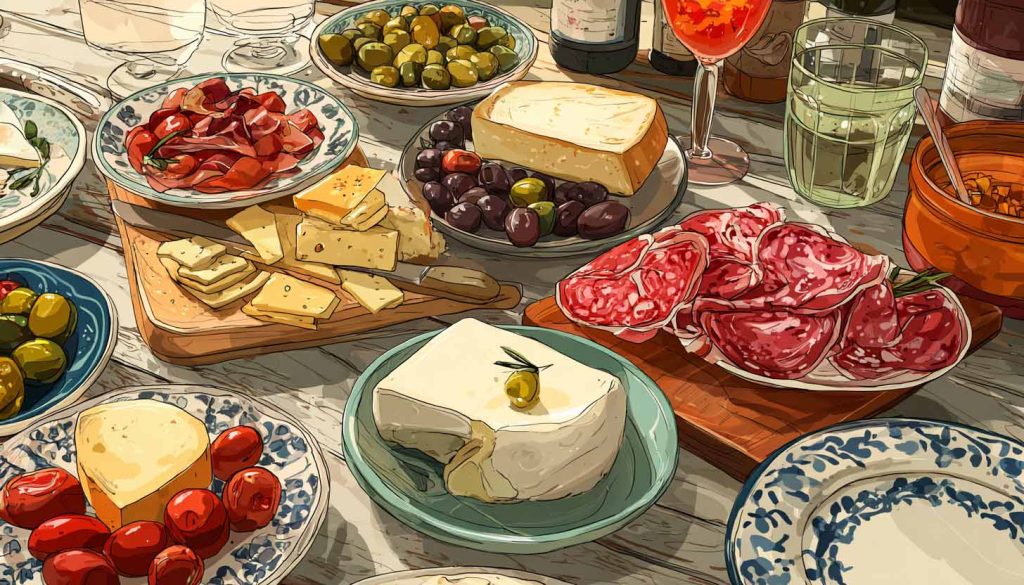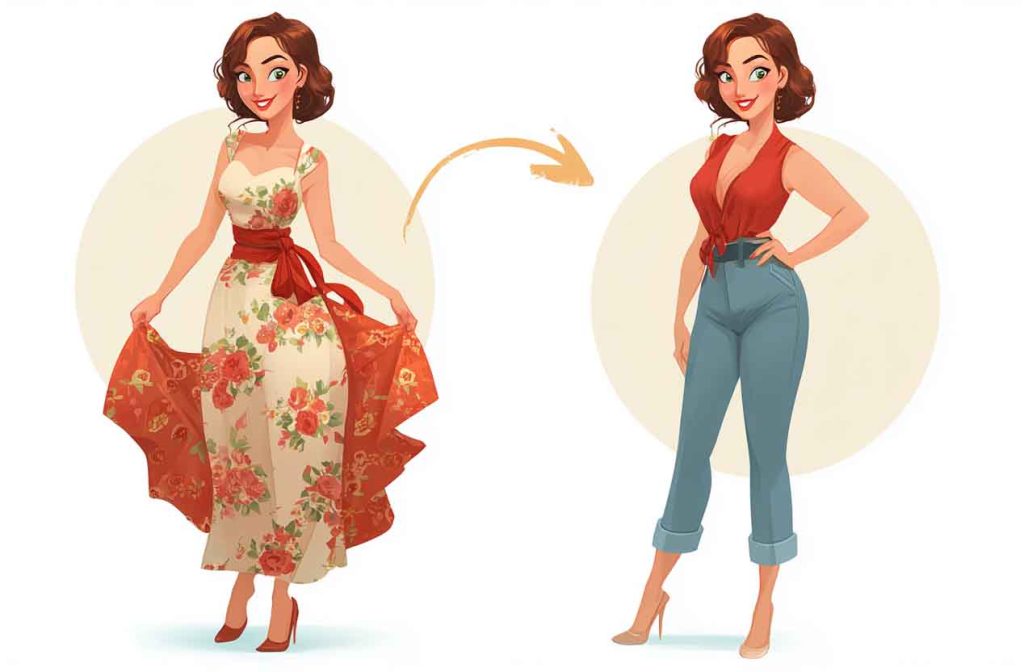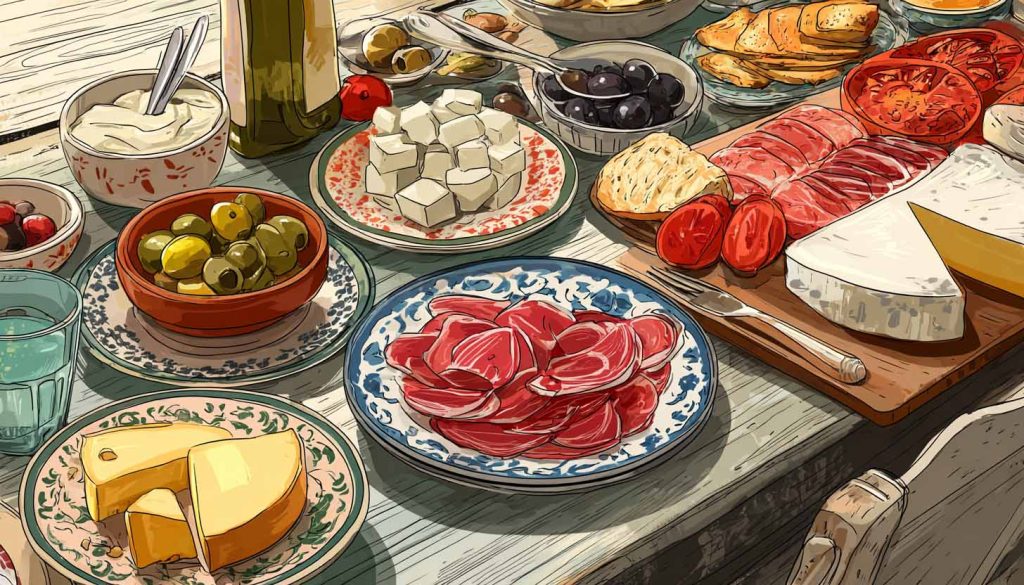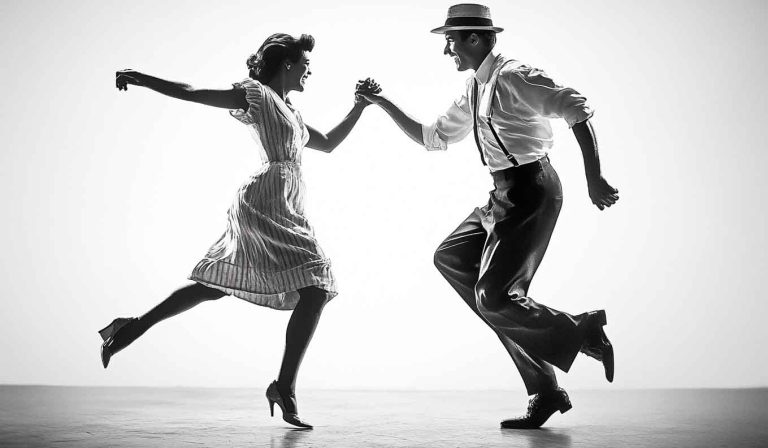
È l’ora dell’aperitivo! Facciamo un Brindisi ai Pronomi Riflessivi!
It’s aperitivo time! Let’s Toast to Reflexive Pronouns!
“Matta”Aperitivo Grammaticale: Bevendo spritz e pronomi riflessivi
“Matta” Appetizer Grammar Party: drinking up spritzes & reflexive pronouns
Benvenuti alla nostra “Matta” festa grammaticale! Immaginate di entrare a un’elegante cena italiana: all’ingresso vi viene offerto un frizzante Aperol Spritz o un calice di prosecco. Sul tavolo vi aspettano bruschette croccanti, formaggi stagionati e un tagliere di affettati pronti da “sgranocchiare” e “mettere i denti”. Poi la vostra padrona di casa, la Matta, vi accoglie calorosamente, seguendo il giusto galateo italiano, con un bacio sulla guancia destra e poi sulla sinistra. Con un sorriso gentile vi porge un brillante vassoio d’argento, non pieno di olive o taralli, ma di pronomi riflessivi, invitandovi a scegliere quello giusto da gustare insieme agli altri antipasti.
Welcome to our “Matta” grammar party! Imagine walking into an elegant Italian dinner: at the entrance you’re handed a sparkling Aperol Spritz or a glass of prosecco. On the table, crispy bruschette, aged cheeses, and a charcuterie board await you to “nibble” and “sink your teeth into.” Then your hostess, la Matta, greets you warmly, following proper Italian etiquette—il galateo—with a kiss on the right cheek and then the left. With a smile, she presents a shining silver platter, not with olives or taralli, but with Reflexive Pronouns, and invites you to pick the right one to savor alongside your other appetizers.

Cosa Sono i Pronomi Riflessivi?
What Are Reflexive Pronouns?
Proprio come gli antipasti aprono la cena, i pronomi riflessivi introducono un nuovo modo di gustare i verbi italiani. I verbi riflessivi hanno una particolarità: l’azione ritorna sempre sul soggetto stesso. In altre parole, in una frase riflessiva c’è un solo soggetto, che fa e riceve l’azione.
Just as appetizers kick off the dinner, reflexive pronouns introduce a new way to savor Italian verbs. Reflexive verbs have a peculiarity: the action always comes back to the subject itself. In other words, in a reflexive sentence there’s only one subject, who both performs and receives the action.
The Italian Reflexive Pronouns are:
Mi —-> myself
Ti —-> yourself
Si —-> him or herself
Ci —-> ourselves
Vi —-> yourselves
Si —-> there selves

Come Funzionano i Verbi Riflessivi
How Reflexive Verbs Work
I verbi riflessivi in italiano si riconoscono facilmente perché all’infinito terminano in “-si”, ad esempio: alzarsi, lavarsi, incontrarsi. Quando si coniugano, quel “si” finale si sposta davanti al verbo — proprio come un antipasto che arriva per primo — e cambia secondo la persona. In pratica, si coniuga il verbo al presente come un normale verbo in -are, -ere o -ire, ma con l’aggiunta del pronome riflessivo corretto: mi, ti, si, ci, vi, si.
In Italian, reflexive verbs are easy to spot because in the infinitive they end with “-si”, for example: alzarsi, lavarsi, incontrarsi. When conjugated, that final “si” moves to the front of the verb — just like an appetizer that comes first — and changes according to the subject. In other words, you conjugate the verb in the present tense just as you would with a regular -are, -ere, or -ire verb, but you add the proper reflexive pronoun: mi, ti, si, ci, vi, si.
Here’s an example with alzarsi (to get oneself up):
ALZARSI
Io mi alzo presto per preparare gli antipasti.
I get up early to prepare the appetizers.
Tu ti alzi dal tavolo per salutare gli ospiti.
You get up from the table to greet the guests.
Lui/lei si alza presto ogni nella mattina.
He/she gets up early every morning.
Noi ci alziamo per accogliere gli altri ospiti.
We get up to greet the other guests.
Voi vi alzate per fare parlare con i miei amici.
You all get up to talk with my friends.
Loro si alzano per prendere un altro spritz.
They get up to get another spritz.
Short List of Common Reflexive Verbs
vestirsi – to get dressed
lavarsi – to wash oneself
chiamarsi – to call oneself, to be named
sedersi – to sit down
addormentarsi – to fall asleep
incontrarsi – to meet each other
divertirsi – to have fun
impegnarsi – to commit oneself
ricordarsi – to remember
svegliarsi – to wake up
sentirsi – to feel well, sick, tired
rilassarsi – to relax
farsi – to make/do something for oneself
preoccuparsi – to worry
accorgersi – to notice, to realize
annoiarsi – to get bored
fermarsi – to stop oneself
muoversi – to move oneself
perdersi – to get lost

I Verbi Riflessivi al Passato Prossimo
How Reflexive Verbs Work in the past tense
Quando i verbi riflessivi si usano al passato prossimo, si coniugano sempre con l’ausiliare ESSERE. Non si usa mai avere! Inoltre, il participio passato deve sempre concordare in genere e numero con il soggetto della frase.
When reflexive verbs are used in the past tense (passato prossimo), they are always conjugated with the auxiliary helper verb ESSERE You never use avere! In addition, the past participle must always agree in gender and number with the subject of the sentence.
Past Tense Examples in Feminine and Masculine
GODERSI —-> TO ENJOY
Past participle you have 4 choices
goduto / goduta / goduti / godute (agrees in gender & number)
Io mi sono goduto/a il vino. (masc / fem singular)
I enjoyed the wine.
Tu ti sei goduto/a il vino. (masc / fem singular)
You enjoyed the wine.
Lui/Lei si è goduto/a il vino. (masc / fem singular)
He/She enjoyed the wine.
Noi ci siamo goduti/e il vino. (masc / fem plural)
We enjoyed the wine.
Voi vi siete goduti/e il vino. (masc / fem plural)
You all enjoyed the wine.
Loro si sono goduti/e il vino. (masc / fem plural)
They enjoyed the wine.
Altri Esempi Gustosi
More Tasty Past Tense Examples of Reflexive verbs in action
Noi ci siamo incontrati all’ingresso della festa.
We greeted ourselves at the entrance of the party.
(maschile plurale → può includere anche misto)
Le amiche si sono divertite chiacchierando con un bicchiere di vino.
The girlfriends enjoyed themselves chatting over a glass of wine.
(femminile plurale)
Tu ti sei ricordata di portare il vino rosso?
Did you (Lucia) remember to bring the red wine?
(femminile singolare)
Voi vi siete preparati un piattino di formaggi.
You all prepared the plate of cheeses.
(maschile plurale)

Quando i Verbi reflessivi cambiano significato
Lo stesso verbo in un’altra veste!
When Reflexive Verbs Change Meaning
Same verb dressed up in a new way!
Alcuni verbi italiani cambiano sapore quando diventano riflessivi, un po’ come un ingrediente che, combinato con un altro, trasforma il gusto di un piatto.
Some Italian verbs change flavor when they become reflexive, just like an ingredient that, when combined with another, transforms the taste of a dish.
Here’s an example how meanings change
when verbs become REFLEXIVE
VESTIRE vs VESTIRSI
vestire = mettere vestiti su qualcuno altro (to dress someone else)
vestirsi = indossare se stesso (to get oneself dressed)
DOMANDARE vs DOMANDARSI
domandare = fare una domanda a qualcuno (to ask a question)
domandarsi = chiedersi, riflettere da soli (to wonder)
DIVERTIRE vs DIVERTIRSI
divertire = intrattenere qualcuno (to entertain someone else)
divertirsi = divertirsi personalmente (to have fun yourself)
CHIAMARE vs CHIAMARSI
chiamare = chiamare qualcuno (to call someone else)
chiamarsi = presentarsi, (to present yourself, say your name)
VEDERE vs VEDERSI
vedere = guardare qualcosa con gli occhi (view or see something)
vedersi = incontrarsi, trovarsi insieme (to see or meet each other)

Una Mini Storia all’Aperitivo
A Mini Story at the Aperitivo
Non appena arrivano gli invitati, tutti si salutano calorosamente alla porta. Si tolgono i cappotti e subito gli amici si mettono comodi in salotto. Marco si alza immediatamente per stappare una bottiglia di prosecco, il tappo che salta con un festoso pop, mentre Laura si siede accanto al tagliere di affettati, già puntando il salame al tartufo. Io mi preparo un crostino con i pomodorini, spalmandolo con cura di aglio e olio, e nel frattempo mi accorgo di aver dimenticato i tovaglioli. Francesca subito si offre di aiutarmi e si precipita in cucina per cercarli.
As soon as the guests arrive, everyone greets each other warmly at the door. Coats are taken off, and friends quickly make themselves comfortable in the living room. Marco gets up right away to open a bottle of prosecco, the cork popping with a festive pop, while Laura sits down next to the charcuterie board, already eyeing the truffle salami. I prepare myself a crostino with cherry tomatoes, carefully spreading the bread with garlic and oil, and in the meantime I realize that I’ve forgotten the napkins. Francesca immediately offers herself to help me and hurries off to the kitchen to find them.
Intanto Paolo e Giulia si servono qualche oliva, ridendo mentre si ricordano di non mangiare troppo prima della pasta. Presto tutti si sistemano, bicchiere alla mano, e si divertono chiacchierando, brindando e festeggiando la buona compagnia, il buon cibo e… la buona grammatica italiana!
Meanwhile, Paolo and Giulia help themselves to some olives, laughing as they remind themselves not to eat too much before the pasta course. Soon everyone settles in, glasses in hand, and enjoys themselves chatting, clinking glasses, and toasting to good company, good food, and good Italian grammar!

E adesso… passiamo alla prossima portata!
And now on to the next course!
Cin Cin! Salute! Ed ecco che il nostro aperitivo grammaticale è servito! Abbiamo assaggiato i pronomi riflessivi proprio come antipasti prima della grande cena della grammatica italiana. Alla prossima portata!
Cheers! And there you have it—our grammar appetizer is served! We’ve sampled reflexive pronouns just like appetizers before the big Italian grammar dinner. On to the next course!
Direct and Indirect Pronouns
Join the Matta Dinner Party for these main courses!
Combined Direct and Indirect Pronouns
Join the Matta Dinner Party for Dessert!
🇮🇹 Un consiglio dalla Matta 🇮🇹
Matta Italian Language Tip!

One more bite of advice!
GOLDEN RULES for REFLEXIVE Verbs:
PRESENT TENSE:
When in doubt about whether a verb is reflexive, check if it ends in “-si” in the infinitive. Remember: the trick is to “move” that si to the front of the verb and conjugate it like any normal present tense -are, -ere, -ire verb.
PAST TENSE: Always think of three steps:
1. Add the reflexive pronoun (mi, ti, si, ci, vi, si).
2. Use ESSERE as the auxiliary HELPER verb.
3. Make the past participle agree in gender and number with the subject.
Another Matta Tip: If you’d like to print or create a PDF of this post you can easily do so using the Chrome Browser Extension —-> GoFullPage! It works beautifully!










